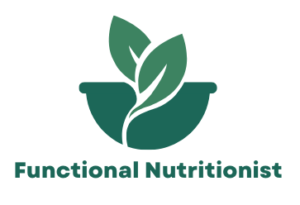There is no perfect food. The meaning of this statement is, there is no food or drink that contains all the nutrients that meet your needs in one meal. Therefore, to get macro and micro nutrients, it is better to eat a variety of foods every day. In the body, all the food you eat will be digested together and the nutrients contained in it will be absorbed. When the digestion process occurs, the nutrients will interact and communicate with each other. To get a complete explanation, you can ask functional nutritionist.

What kind of interactions occur between nutrients in the body?
The interactions that occur between nutrients affect the amount of absorption in the body. The level of absorption of a nutrient in the body is called bioavailability. In carrying out interactions, each nutrient has its own role to influence the absorption of other nutrients. The role of each nutrient is as an inhibitor and enhancer. These two roles will affect the amount of absorption and determine the level of nutrients that can be absorbed by the body. So what is the meaning of each role?
Enhancer, a nutrient that increases absorption
All nutrients can be enhancers or inhibitors at the same time for other nutrients. Nutrients that act as enhancers are nutrients that can help the absorption of other nutrients in the body. When a nutrient meets its enhancer, the nutrient can be maximally absorbed by the body so that its amount in the body will increase and grow rapidly. In addition, enhancers can also keep a nutrient from being disturbed by inhibitors that can reduce its absorption rate in the body.
For example, if you often consume foods that are sources of animal protein, such as red meat, chicken, and fish and then you still experience iron deficiency in the blood, then you need to consume foods that contain high sources of vitamin C. The iron in red meat, chicken, or fish has a good ‘relationship’ with vitamin C. Vitamin C is an enhancer of iron that can increase the absorption of iron in the body. This means that you can get more iron in your body with just a glass of orange juice and foods that are rich in iron such as beef and green leafy vegetables. Another example, fat also acts as an enhancer or substance that increases the absorption of vitamin A. Because of the fat-soluble nature of vitamin A, the presence of fat in the body makes it easier to digest and absorb vitamin A.
Inhibitors, nutrients that inhibit nutrient absorption
Unlike enhancers that can increase the absorption of a nutrient, inhibitors actually inhibit the absorption of a nutrient. Inhibitors inhibit the absorption process in various ways, namely by:
Binding the nutrient so that the body does not recognize the nutrient and then the intestines do not absorb it because it considers the substance an unknown foreign substance.
Changing the form of a nutrient when it is already in the body, so that it cannot be digested and absorbed by the intestines.
Competing to be absorbed by the body, for example in plant-based food sources that contain phytate which is a competitor for iron, calcium, and zinc. This can be detrimental to the body because it can cause the body to lack minerals. To prevent this, you can reduce the levels of phytate in vegetables by fermenting or soaking them in water.
Another example of an inhibitor is the interaction of calcium with non-heme iron. Non-heme iron is iron obtained from plant-based food sources, such as spinach. Calcium and non-heme iron are inhibitors for both. When these two minerals are in the body and ready to be absorbed, these two minerals bind to each other to the transporter on the surface of intestinal cells. However, when iron wants to enter the cell and be absorbed by the cell, calcium actually blocks the entrance of iron to the cell. Therefore, if you take iron supplements, do not consume milk at the same time, to avoid this disorder.
These two roles, inhibitors and enhancers can have bad and good effects on the body, because they will disrupt the balance of nutrients in the body. If a nutrient that is already excessive in the body then meets an enhancer and makes the amount of that nutrient increase in the body and this is not good for health. Likewise, when the body lacks a certain nutrient and then interacts with other nutrients that are inhibitors, it can worsen the previous deficiency.
Malnutrition, or undernutrition, is a term to describe the lack of energy (calories) and essential nutrients needed by a person to maintain their health.
The term malnutrition is often associated with malnutrition. In fact, the two terms are different. The difference between malnutrition and malnutrition can be seen from their meanings. Malnutrition means a condition in which the body lacks nutrients, while malnutrition is a serious health problem that occurs due to unbalanced nutritional intake. Both malnutrition and excess nutrition are both classified as malnutrition. Lack of nutritional intake causes low body weight (underweight or thin), while excess nutrition is the cause of overweight and obesity. Both conditions of malnutrition can cause various health problems.
The characteristics of malnutrition can vary from person to person, depending on what nutrient intake is lacking.
However, the main characteristic of this condition is drastic weight loss, precisely 5-10% of body weight in 3-6 months. If a person does not get enough energy and nutrients for one month, he will lose about a quarter of his body weight. If this continues, he can lose about half of his total initial body weight. Drastic weight loss is usually also accompanied by other changes, such as:
The skin becomes thinner, drier, or paler,
The cheeks and eyes appear sunken, and
Hair becomes dry and falls out easily.
In addition, people who are malnourished are more often cold, have no appetite, are easily angered, and are susceptible to disease. Once sick, they take longer to recover and get back in shape. Lack of energy also makes you easily lethargic and unable to carry out daily activities properly. In women, menstrual cycles may become irregular or stop altogether.








